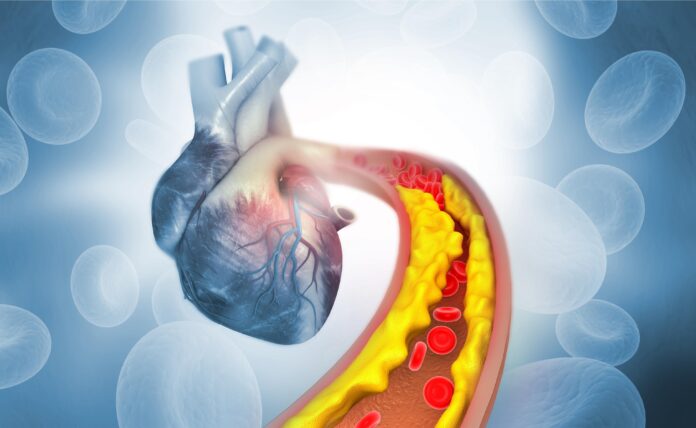The race is on to develop a low-cost vaccine to treat high cholesterol, a condition that can lead to heart attacks and strokes. Last year I wrote about research being done by Vaxxinity, a biotechnology company based in Cape Canaveral, Florida, that had developed VXX-401, a vaccine that in preclinical trials was seeing favourable results.
More recently, researchers from the University of New Mexico School of Medicine have described their work to develop an inexpensive vaccine targeting high levels of LDL cholesterol. Their research is described in an article entitled, “A virus-like particle-based bivalent PCSK9 vaccine lowers LDL-cholesterol levels in non-human primates,” published last September in the Nature journal NPJ Vaccines.
The research team behind the vaccine is led by Bryce Chackerian, Regents’ Professor in the Department of Molecular Genetics and Microbiology. He is one of the authors of the paper. In a university press release, Chackerian states that the vaccine’s goal is to become an affordable treatment for high LDL cholesterol levels administered once per year.
High cholesterol is a key risk factor in the development of ischemic heart disease (IHD) also known as atherosclerotic cardiovascular disease (ASCVD), a condition where cholesterol, fat, calcium, and other substances form plaque that build up on arterial walls eventually causing narrowing and blockages. Statistics from 2019 estimate that nearly 200 million people globally are living with IHD which is a major cause of death worldwide and the leading cause of it in both men and women in the United States and Canada.
Abinash Achrekar, a cardiologist and Vice Chair at the University’s Department of Internal Medicine, has seen his fair share of patients with IHD. He has a personal and clinical perspective on the subject, having treated high cholesterol, and being diagnosed with it since the age of 16. He sees the work being done by his colleagues as revolutionary.
Current High Cholesterol Treatments
Today, the most common treatment for high cholesterol is the daily taking of statins. Statins work to lower cholesterol levels in the blood by inhibiting the HMG-CoA reductase protein which controls cholesterol production in the liver. Statins are generally well tolerated. I have been on one for more than a decade and my wife recently was put on the same statin as well. Fortunately for me, I have been able to adjust to taking a daily dose with a Co-Q10 supplement which has eliminated the muscle pain side effect of the statin. My wife has experienced far more side effects. And although statins are not expensive, the issue of side effects, some quite serious, makes looking at developing alternative treatments very important.
One alternate treatment is a monoclonal antibody administered through twice-monthly injections to block high levels of another protein, called PCSK9, linked to LDL cholesterol. This treatment is expensive making it unaffordable for those without health insurance coverage. Hence, finding a more affordable treatment and one that produces fewer side effects than a statin, has become a target of medical researchers. Vaxxinity has produced its alternative vaccine and now Chackerian and his fellow researchers believe they have found one as well.
The New Vaccine Being Developed
The University of New Mexico vaccine uses a non-infectious virus shell as the medium to deliver tiny pieces of the PCSK9 protein into the bloodstream to cause the body’s immune system to develop protein-targeting antibodies. Chackerian states, “In the animals that we vaccinated, we see strong reductions in cholesterol levels – up to 30% – and that is going to be correlated with reduced risk of heart disease.” These animal tests and vaccine development have taken a decade. The animal subjects have included mice and monkeys.
The next step for the vaccine developers is to find funding to manufacture it followed by the setting up of human clinical trials. Chackerian estimates that the vaccine could be delivered to patients for “tens of dollars a dose,” and remain effective for a year. He notes, “This is a vaccine that we think can have a global impact. So, not just in the United States, but around the world where heart disease is a significant problem.”
What’s the estimated timeline to see general availability? It should be on the market as an alternative treatment for high LDL cholesterol within the next 10 years if the human clinical trials go well.









